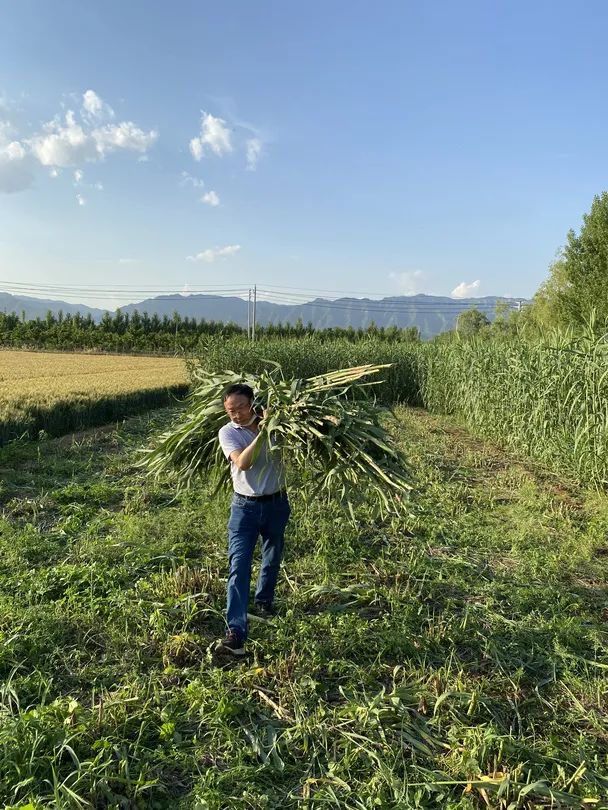Researchers use Juncao to rehabilitate polluted soil in northern China
Researchers from central China’s Henan province are in the process of filing a patent application for a kind of Juncao (meaning a herbal plant for growing edible mushrooms) that’s able to absorb 20 grams of lead and 2 grams of cadmium from 1 mu of soil (1 mu is 667 square meters) every year.

Photo shows a man carrying Juncao from the “Lyuzhou No. 1” program on his shoulders across farmland in central China’s Henan province. (Photo/Qiao Di)
The Juncao grass, named “Lyuzhou No. 1”, can grow to a height of about 5 meters without having to be fertilized, or sprayed with pesticides. The lifespan of the plant can reach 20 to 30 years, researchers with the Henan Academy of Sciences (HAS) based in northern China’s Henan province told Science and Technology Daily.
“We are the first in the country to use Juncao to curb heavy metal pollution in soils in northern China,” said Yu Xuejun with a research center under the HAS, disclosing that they are applying for a patent for the Juncao soil rehabilitation project.
As a low-cost, profitable, industry-oriented and sustainable ecological approach to restore soil health, the Juncao project provides a solution for farmland rehabilitation in northern China. As a major agricultural province in China, Henan faces an arduous task in tackling difficulties related to improving its soil, especially with regards to curbing heavy metal pollution in the soil.
Yu introduced that there are two mainstream methods to restore soil heath. The first is to deactivate heavy metals in the soil through the use of stabilization chemicals. This approach has proven to be less effective and costly. The second method is to remove the detrimental heavy metals found in the soil through phytoextraction. This approach has constraints as well, with some useful plants unable to survive through the winter in northern China for example. What’re more, after being processed, the plants have to then be incinerated upon disposal, which will generate additional costs and lead to carbon emissions.
Four years ago, the HAS kicked off its “Lyuzhou No. 1” test program, with the hope that it would become an effective solution to aid in the recovery of soil health. And their efforts have since been repaid in full. At a conference on high-quality grass promotion held in May 2020, Henan revealed a plan for expanding the planting area of the “Lyuzhou No. 1” Juncao to 500,000 mu during a period of three years, and 1 million mu during a period of five years.
Photos
Related Stories
Copyright © 2021 People's Daily Online. All Rights Reserved.










